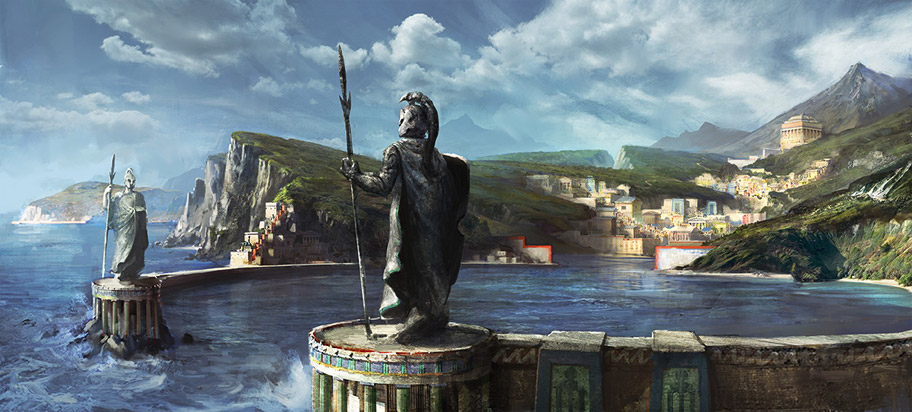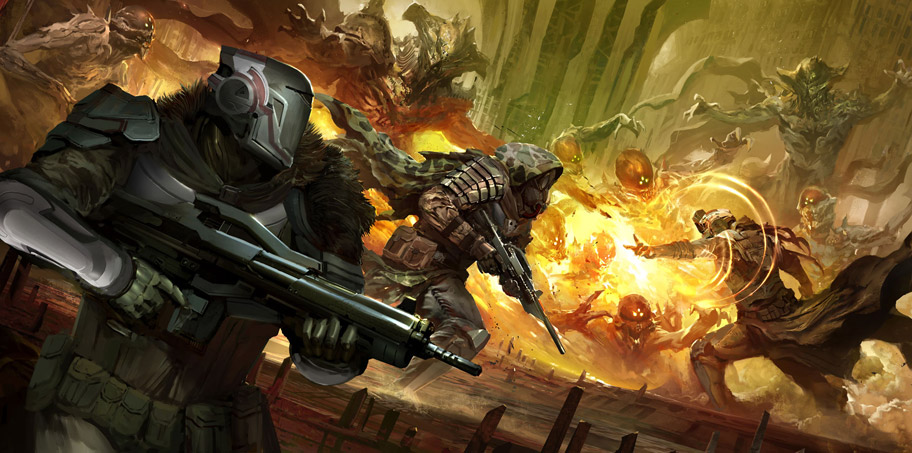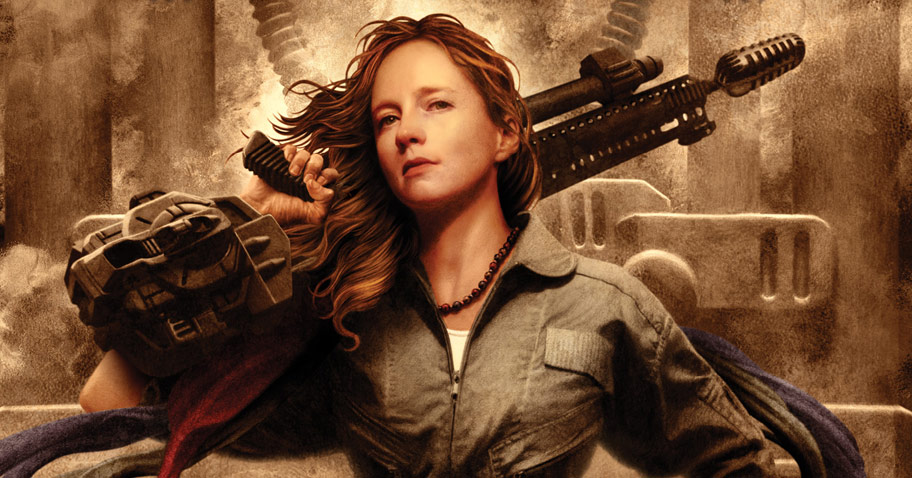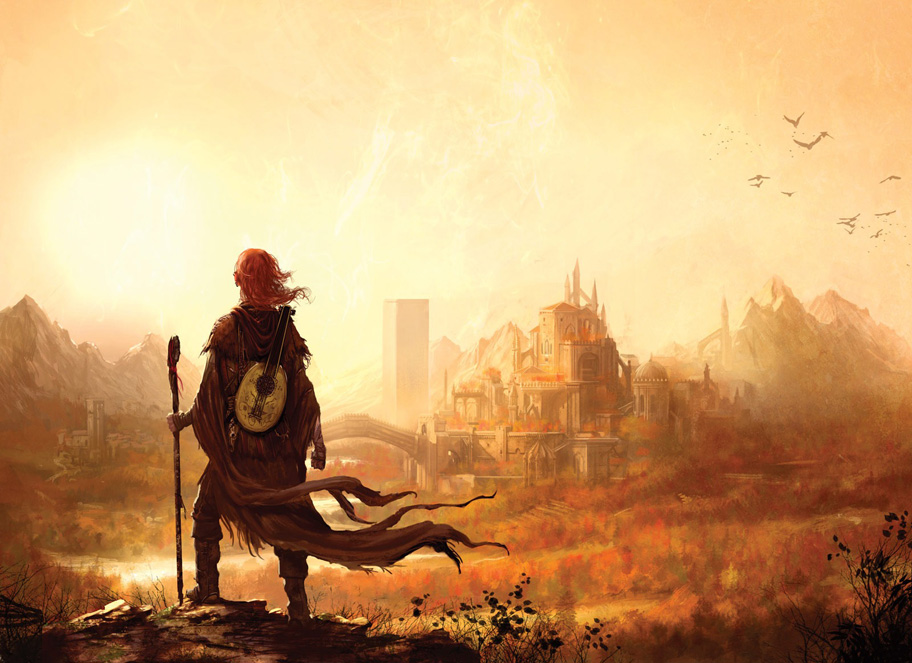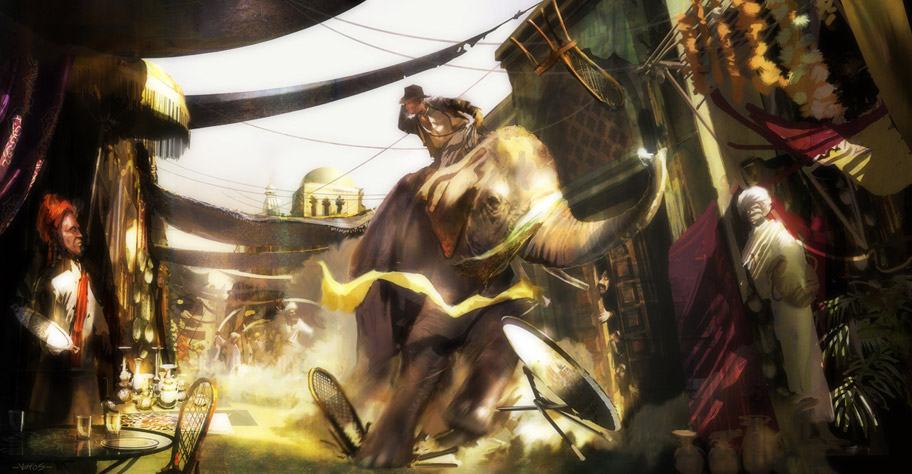I’ve been a fan of crime fiction probably for as long as I’ve been a fan of fantasy books, even though I’ve not delved into the heritage of the genre as much. So for Drakenfeld – which is every bit as much a crime book as it is a fantasy novel – I wanted to use part of the crime genre’s heritage as a vehicle for the plot. I didn’t want to write hardboiled fiction, nor did I want to write a thriller – even though I enjoy both. Also, I wasn’t writing the type of urban magical crime, so I couldn’t rely on those things to carry the narrative. So I decided to make it not just a whodunnit, but a howdunnit by using one of the crime genre’s great formats: the locked-room mystery. Or rather, in my case, a locked-temple mystery. The set-up is a lot of fun – because it’s not just about an unreliable narrator, it’s about a manipulative author. Read More »
Posts Tagged: Featured Article
I’ve recently been thinking of science fiction as literature of the moment, an examination of how we look at the world and all of the many changes that pass us by. Given the state of the world, military science fiction has long struck me as a way to make sense of the global impact of the ‘war on terror’ and other related actions across the world.
Rugged individualism and a sense the edge of the world is an opportunity, no matter who’s already there.
Predominantly, Military Science Fiction as a distinct subgenre comes out of works published in the 1950s by American science fiction authors, namely Robert Heinlein and Gordon R. Dickson, whose respective books Starship Troopers and Dorsai!, have spawned an entire industry of imitators. Steeped in the fears of the Cold War, these novels were written at a time when global annihilation appeared imminent, held back only by the raw power held by the United States Armed Forces and the inherent greatness of the American way. This lines up strongly with other trends one sees in American strains of Science Fiction: rugged individualism and a sense that the edge of the world is an opportunity, no matter who’s already there.
Science fiction tends to carry along its baggage for a long time. While there’s been an incredible evolution of outstanding stories, the genre’s frequently saddled with a pulp characterization; the incredible changes from the so-called Golden Age to the New Wave and beyond simply doesn’t register. Military SF, in many ways, has a similar history: it remains, in many people’s minds, a relic of the 1950s, when the Cold War raged between the politicians and armies of the US and USSR. In retrospect, it’s appears to be a simpler conflict than what we face today. Read More »
Outside of the places we convene as a tribe, such as Worldcon (coming up in San Antonio this coming weekend), it’s hard to find locations where the science fiction writer in me feels at home. It’s easy to go where people love fantasy, and perhaps – just perhaps – mumble behind their hand that they read science fiction. Maybe they say they read ‘it’ when they were younger. But this year I found a new place where fantasy is mumbled about and brings a blush to the cheeks, while the faces of SF gurus show up in PowerPoint slides. Read More »
Readers, in many ways, want the same experience they’ve already had, only slightly different.
I was at a convention recently, and I was sitting on a panel with R.T. Kaelin, Timothy Zahn, and Pat Rothfuss. The subject of the panel was the ins and outs of writing the trilogy, but as you tend to do on panels, we started to wander toward other topics. Thus was born the subject of this post.
I was blabbering on about how you create arcs, not only for individual books but for an entire series (a trilogy or longer series), and I coughed up that old chestnut, that your characters need to change over the course of the story. Pat, being the contrarian he is, said something like, “I don’t really know that that’s true. Readers, in many ways, want the same experience they’ve already had, only slightly different.” I’m paraphrasing, of course, but the point is that he DISAGREED WITH ME! How DARE he! No, wait, that isn’t the point at all. Once I got over being flustered, I started to think of all the ways I could defend my point.
I ran out of those relatively quickly.
Then I started thinking about the ways I was wrong. Is it true? Should characters, in fact, not change much at all? Read More »
I Like a Little Globetrotting with My Action
Let’s talk about modern adventure stories. My generation grew up watching what I consider to be the pinnacle of the modern adventure story: Raiders of the Lost Ark. So when adventure comes to mind, Indiana Jones is the first name on the tip of my tongue. Like any classic film, there are so many standout moments in Raiders, and I it’s difficult to narrow its successes to just one or two. Let’s take a handful.
I remember the massive boulder chasing Indy through the narrow corridor and that somehow cocky look of fear only Harrison Ford can pull off. There’s the bar fight with the read poker and burning alcohol, the bad dates and the dead monkey, that guy with the big sword who Indy guns down as he catches his breath. Then there’s the snakes (“Why did it have to be snakes”), the fist fight and bloody plane propellers, and of course the opening of the arc which is so face-meltingly magnificent, it literally melts their faces.
Man, Raiders of the Lost Ark is a great film.
But for all the action and glory the modern adventure genre story tacks on, over the years I worry that it has lost something somehow. Adventure is classified by traveling action. One scene is in America, the next is in France, then we’re stealing some gold in Africa, and dodging explosions in Australia. These days, it seems the between Action and Adventure is only the distance put on the odometer during the course of the story. Read More »
